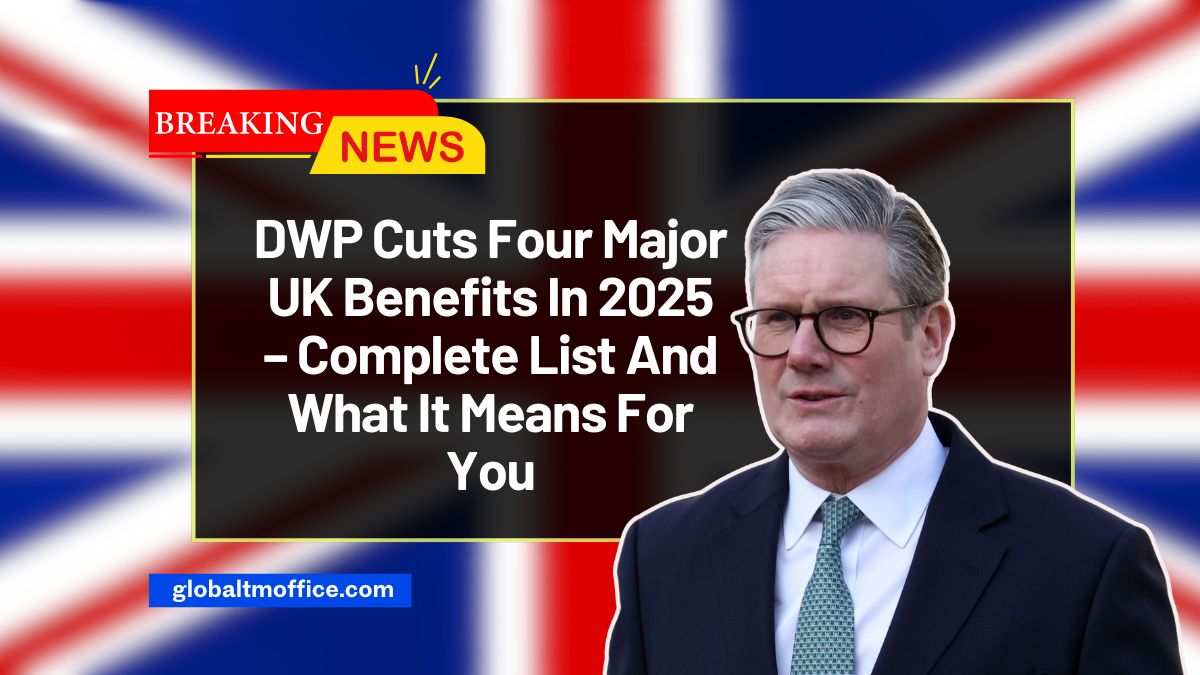In May 2025, the Department for Work and Pensions (DWP) announced sweeping changes to the welfare system, affecting four major UK benefits. These cuts are part of a broader government strategy aimed at reducing public spending and incentivising employment.
While officials argue the move promotes an efficient system, the changes have raised serious concerns among vulnerable groups.
This article explains the affected benefits, timelines, and how these changes might impact claimants in the months ahead.
Overview of the 2025 UK Benefit Cuts
| Benefit Name | Type of Change | Effective From | Expected Impact |
|---|---|---|---|
| Universal Credit | Reduced work allowance | July 2025 | Lower monthly payments for part-time workers |
| Personal Independence Payment | Stricter eligibility criteria | September 2025 | Fewer successful new claims |
| Employment and Support Allowance | Reduced support group rates | August 2025 | Financial strain for disabled claimants |
| Housing Benefit | Local cap revisions | October 2025 | Reduced housing assistance, especially in high-rent areas |
Why Are These DWP Benefit Cuts Happening?
The primary reason cited for these changes is economic. The UK is still facing post-pandemic financial pressures, and rising inflation has put additional strain on public spending.
The government aims to reshape welfare into a system that prioritizes employment and encourages self-sufficiency.
However, these changes have been criticised by disability advocates, low-income families, and charities, who argue that the most vulnerable will bear the brunt of the cuts.
Who Will Be Most Affected?
These cuts are expected to hit specific groups the hardest, particularly:
- Single parents relying on Universal Credit with reduced work allowances
- Disabled individuals who may no longer qualify for ESA or PIP under stricter assessments
- People living in high-rent areas such as London and the South East due to Housing Benefit cap revisions
- Part-time workers already struggling with basic expenses
Detailed Breakdown of Each Benefit Cut
Universal Credit (UC)
From July 2025, the work allowance will be lowered, meaning claimants who work part-time will receive less support. This could push more households toward the poverty line as monthly entitlements decrease.
Personal Independence Payment (PIP)
From September 2025, stricter eligibility rules will come into effect. These may lead to a significant drop in successful new claims, particularly for people with less visible or fluctuating conditions.
Employment and Support Allowance (ESA)
The support group rate will be reduced from August 2025, leading to lower monthly payouts for people unable to work due to health issues. This change will add financial strain to many disabled individuals.
Housing Benefit
From October 2025, local housing caps will be revised, effectively reducing rent support in many areas. Those living in urban and high-cost regions will see the greatest reduction in aid.
How to Prepare for the Changes
To manage the transition, claimants should:
- Review their current benefit entitlements using official DWP tools
- Seek help from local advisory groups or support services
- Collect documentation in advance for upcoming assessments (especially for PIP and ESA)
- Plan for a drop in housing support by budgeting early or seeking alternative options
The DWP is expected to release updated guidance by mid-June 2025 to help claimants adapt to these new rules.
What This Means for the Future of Welfare
These reforms represent a clear shift toward a leaner, work-first welfare system. While designed to promote employment and reduce state dependency, critics argue it penalises those who genuinely require long-term support, including carers, the disabled, and part-time workers.
Future fiscal reviews may introduce additional cuts or policy changes if these reforms are deemed successful at reducing expenditure.
The DWP’s 2025 benefit cuts are some of the most significant welfare reforms in recent years. They reflect the government’s aim to reshape the welfare state through stricter eligibility and reduced payouts.
While these measures may serve fiscal goals, they also risk deepening inequality and leaving the most vulnerable with fewer lifelines.
Staying informed and prepared is crucial—review your benefits, seek advice, and get ready for the changes ahead.
FAQs
When will the new benefit changes take effect?
The changes roll out in stages between July and October 2025, depending on the benefit affected.
Will current claimants be reassessed automatically?
Yes, many claimants, especially those receiving PIP or ESA, will undergo reassessment under the new criteria.
What should I do if my benefits are reduced?
You should consult a local advisory service, appeal decisions where necessary, and explore alternative assistance programs as soon as possible.
